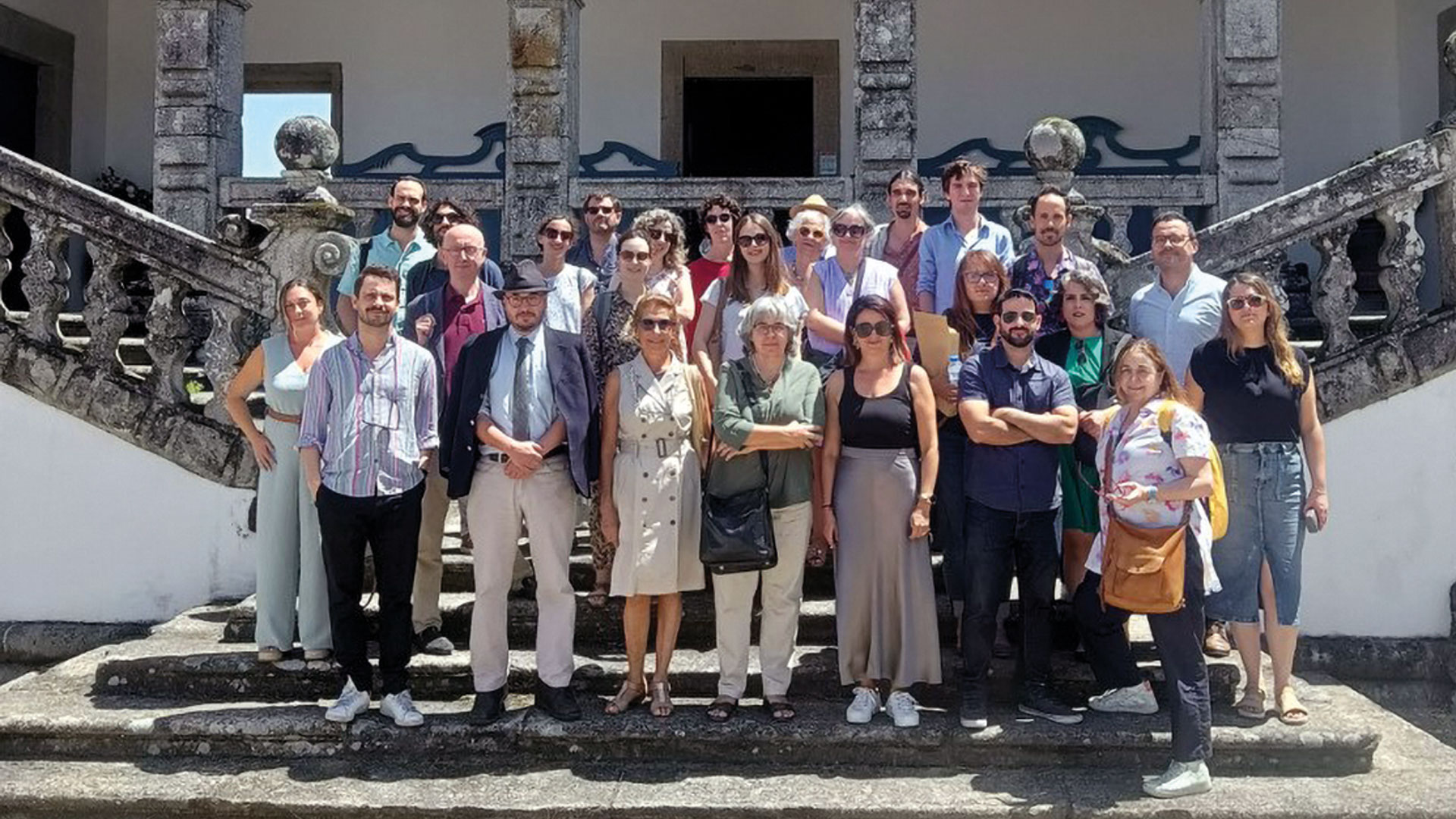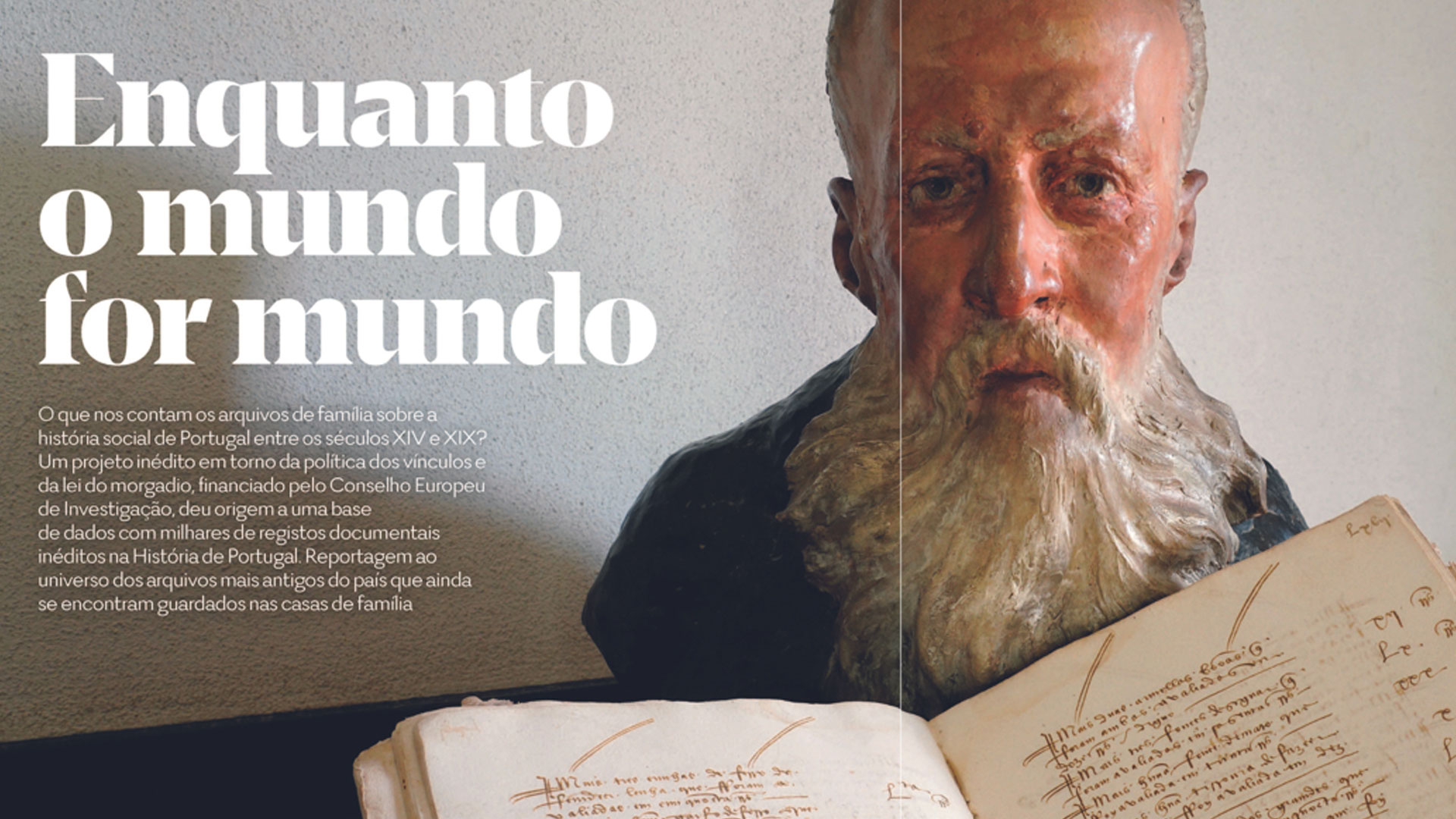In contrast to the situation in most European countries, family archives in Portugal were scarcely described and studied, or had a very limited expression in local or private archives. Moreover, they were not used in in-depth historical research, or studied according to updated, interdisciplinary parameters. History suffered from this absence. Archival heritage was unknown and threatened, and Historical Archivists were unknown in Portugal. The absence of family archives in the construction of historical explanations about the functioning of pre-modern Portuguese society drove Professor Maria Pereira Rosa to create, in 2008, a research and teaching program in NOVA FCSH – «Family Archives, Community Archives: archives, history, cultural heritage».
The Program was born from post-doctoral research of primarily scientific scope, and aimed to study a rich family archive, which contained documents from the 14th century onwards. The research sought to address the problem of how to reach the direct voice of individuals and families who lived in those centuries, and who, in Portuguese historiography, had been mainly studied through Crown and Church archives. In a broader perspective – to understand how families and individuals were structured in a corporate society, using their own devices to endure and resist those stronger institutions. In a theoretical scope – to apply non-anachronistic models to the study of pre-French Revolution society, through historical anthropology.
Looking to address these problems, Prof. Rosa team have discovered a large amount of unpublished documents – studied it in MA and Ph.D. theses; researched ten new archives, some with thousands of documents; made available online ancient inventories (INVENTARQ website, online since 2015) and published seven books and more than 30 articles and book chapters (ARQFAM website).
Furthermore, Prof. Rosa team worked extensively in outreach actions. In the project, rare documents were recovered, made available and studied – restoration of five documents of enormous importance in private or public archives (two in peripheral regions – Madeira and Cape Verde); and funded the recovery of thousands of folios of documents in the Regional Archive of Madeira. The team carried out different cultural dissemination actions – free online DIY book; monthly articles about local history; exhibitions, free courses, training actions, open meetings; school competition (2023). Articles were published in two leading weekly magazines (Observador, 2020; Expresso, 2023) and in several other newspapers, as well as a report on RTP Madeira. Besides researchers and students, key publics / stakeholders are private archive owners; public archives; local communities – including peripheral and undeveloped areas.
Curiously, Prof. Rosa’s previous research and sporadic contacts with family archive owners indicated the documents’ existence, but these owners’ relationship with the academy was almost non-existent. The turning point came with the inclusion of archival owners, as direct speakers, in the first scientific meetings of the program. From 2009, meetings were held with archival owners, historians and archivists collaborating as peers to discuss common problems. Over the years, the program gained international recognition and impacted society (researchers, students, private archive owners, public archives and local communities) through: 1) scientific meetings; 2) teaching and tutoring doctoral courses at universities and scientific institutions abroad; 3) promoting science communication meetings fostering local history and heritage knowledge; 4) writing manuals for the general public; 5) publishing books and articles; 6) obtaining public scientific funding and private sponsoring, namely high-level scholarships, in the US and France, and an ERC Grant; 7) implementing a new PhD in Historical Archival Studies at NOVA FCSH, unique in Europe; 8) gaining media presence, with articles published in two leading weekly magazines and in several other newspapers, as well as a report on RTP Madeira and an invitation to present results at the Sustainable Value Creation Summit (NOVA.SBE, 2023); and 9) the presence in local communities. In fact, research was always accompanied by science communication actions, fostering local history and heritage knowledge (exhibitions at Torre do Tombo in 2016 and Biblioteca Nacional in 2021-2022; “Entail of the month” initiative, now with 30 editions, mostly by local archive owners and historians).
Overall, the program has opened research paths, brought the voices of forgotten protagonists, and enabled new and plural visions of the past. In a pioneering way, it has deeply impacted past and present, and it is the researchers’ aim to make it deeply impact the future!
Maria de Lurdes Rosa’s work on the protection of private archives since 2009 is to her great credit: she has raised awareness among archive owners, organised study days and international conferences and published a manual on the protection of family archives.
Christine Nougaret (Emeritus Professor at the École Nationale des Chartes (Paris), Director of the Private Archives Section at the Archives Nationales de France from 1999 to 2006


